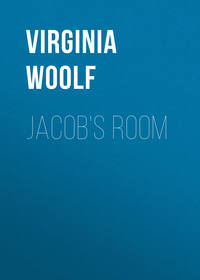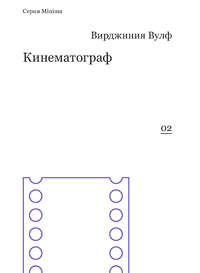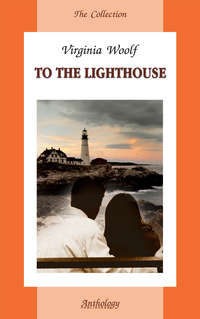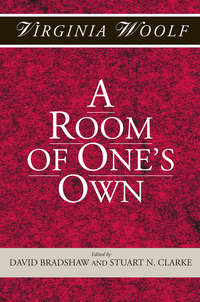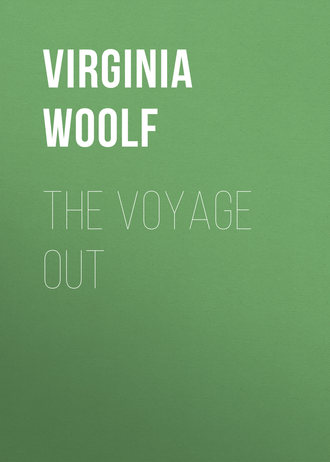 полная версия
полная версияThe Voyage Out
Next morning the storm was on them, and no politeness could ignore it. Mrs. Dalloway stayed in her room. Richard faced three meals, eating valiantly at each; but at the third, certain glazed asparagus swimming in oil finally conquered him.
"That beats me," he said, and withdrew.
"Now we are alone once more," remarked William Pepper, looking round the table; but no one was ready to engage him in talk, and the meal ended in silence.
On the following day they met – but as flying leaves meet in the air. Sick they were not; but the wind propelled them hastily into rooms, violently downstairs. They passed each other gasping on deck; they shouted across tables. They wore fur coats; and Helen was never seen without a bandanna on her head. For comfort they retreated to their cabins, where with tightly wedged feet they let the ship bounce and tumble. Their sensations were the sensations of potatoes in a sack on a galloping horse. The world outside was merely a violent grey tumult. For two days they had a perfect rest from their old emotions. Rachel had just enough consciousness to suppose herself a donkey on the summit of a moor in a hail-storm, with its coat blown into furrows; then she became a wizened tree, perpetually driven back by the salt Atlantic gale.
Helen, on the other hand, staggered to Mrs. Dalloway's door, knocked, could not be heard for the slamming of doors and the battering of wind, and entered.
There were basins, of course. Mrs. Dalloway lay half-raised on a pillow, and did not open her eyes. Then she murmured, "Oh, Dick, is that you?"
Helen shouted – for she was thrown against the washstand – "How are you?"
Clarissa opened one eye. It gave her an incredibly dissipated appearance. "Awful!" she gasped. Her lips were white inside.
Planting her feet wide, Helen contrived to pour champagne into a tumbler with a tooth-brush in it.
"Champagne," she said.
"There's a tooth-brush in it," murmured Clarissa, and smiled; it might have been the contortion of one weeping. She drank.
"Disgusting," she whispered, indicating the basins. Relics of humour still played over her face like moonshine.
"Want more?" Helen shouted. Speech was again beyond Clarissa's reach. The wind laid the ship shivering on her side. Pale agonies crossed Mrs. Dalloway in waves. When the curtains flapped, grey lights puffed across her. Between the spasms of the storm, Helen made the curtain fast, shook the pillows, stretched the bed-clothes, and smoothed the hot nostrils and forehead with cold scent.
"You are good!" Clarissa gasped. "Horrid mess!"
She was trying to apologise for white underclothes fallen and scattered on the floor. For one second she opened a single eye, and saw that the room was tidy.
"That's nice," she gasped.
Helen left her; far, far away she knew that she felt a kind of liking for Mrs. Dalloway. She could not help respecting her spirit and her desire, even in the throes of sickness, for a tidy bedroom. Her petticoats, however, rose above her knees.
Quite suddenly the storm relaxed its grasp. It happened at tea; the expected paroxysm of the blast gave out just as it reached its climax and dwindled away, and the ship instead of taking the usual plunge went steadily. The monotonous order of plunging and rising, roaring and relaxing, was interfered with, and every one at table looked up and felt something loosen within them. The strain was slackened and human feelings began to peep again, as they do when daylight shows at the end of a tunnel.
"Try a turn with me," Ridley called across to Rachel.
"Foolish!" cried Helen, but they went stumbling up the ladder. Choked by the wind their spirits rose with a rush, for on the skirts of all the grey tumult was a misty spot of gold. Instantly the world dropped into shape; they were no longer atoms flying in the void, but people riding a triumphant ship on the back of the sea. Wind and space were banished; the world floated like an apple in a tub, and the mind of man, which had been unmoored also, once more attached itself to the old beliefs.
Having scrambled twice round the ship and received many sound cuffs from the wind, they saw a sailor's face positively shine golden. They looked, and beheld a complete yellow circle of sun; next minute it was traversed by sailing stands of cloud, and then completely hidden. By breakfast the next morning, however, the sky was swept clean, the waves, although steep, were blue, and after their view of the strange under-world, inhabited by phantoms, people began to live among tea-pots and loaves of bread with greater zest than ever.
Richard and Clarissa, however, still remained on the borderland. She did not attempt to sit up; her husband stood on his feet, contemplated his waistcoat and trousers, shook his head, and then lay down again. The inside of his brain was still rising and falling like the sea on the stage. At four o'clock he woke from sleep and saw the sunlight make a vivid angle across the red plush curtains and the grey tweed trousers. The ordinary world outside slid into his mind, and by the time he was dressed he was an English gentleman again.
He stood beside his wife. She pulled him down to her by the lapel of his coat, kissed him, and held him fast for a minute.
"Go and get a breath of air, Dick," she said. "You look quite washed out… How nice you smell!.. And be polite to that woman. She was so kind to me."
Thereupon Mrs. Dalloway turned to the cool side of her pillow, terribly flattened but still invincible.
Richard found Helen talking to her brother-in-law, over two dishes of yellow cake and smooth bread and butter.
"You look very ill!" she exclaimed on seeing him. "Come and have some tea."
He remarked that the hands that moved about the cups were beautiful.
"I hear you've been very good to my wife," he said. "She's had an awful time of it. You came in and fed her with champagne. Were you among the saved yourself?"
"I? Oh, I haven't been sick for twenty years – sea-sick, I mean."
"There are three stages of convalescence, I always say," broke in the hearty voice of Willoughby. "The milk stage, the bread-and-butter stage, and the roast-beef stage. I should say you were at the bread-and-butter stage." He handed him the plate.
"Now, I should advise a hearty tea, then a brisk walk on deck; and by dinner-time you'll be clamouring for beef, eh?" He went off laughing, excusing himself on the score of business.
"What a splendid fellow he is!" said Richard. "Always keen on something."
"Yes," said Helen, "he's always been like that."
"This is a great undertaking of his," Richard continued. "It's a business that won't stop with ships, I should say. We shall see him in Parliament, or I'm much mistaken. He's the kind of man we want in Parliament – the man who has done things."
But Helen was not much interested in her brother-in-law.
"I expect your head's aching, isn't it?" she asked, pouring a fresh cup.
"Well, it is," said Richard. "It's humiliating to find what a slave one is to one's body in this world. D'you know, I can never work without a kettle on the hob. As often as not I don't drink tea, but I must feel that I can if I want to."
"That's very bad for you," said Helen.
"It shortens one's life; but I'm afraid, Mrs. Ambrose, we politicians must make up our minds to that at the outset. We've got to burn the candle at both ends, or – "
"You've cooked your goose!" said Helen brightly.
"We can't make you take us seriously, Mrs. Ambrose," he protested. "May I ask how you've spent your time? Reading – philosophy?" (He saw the black book.) "Metaphysics and fishing!" he exclaimed. "If I had to live again I believe I should devote myself to one or the other." He began turning the pages.
"'Good, then, is indefinable,'" he read out. "How jolly to think that's going on still! 'So far as I know there is only one ethical writer, Professor Henry Sidgwick, who has clearly recognised and stated this fact.' That's just the kind of thing we used to talk about when we were boys. I can remember arguing until five in the morning with Duffy – now Secretary for India – pacing round and round those cloisters until we decided it was too late to go to bed, and we went for a ride instead. Whether we ever came to any conclusion – that's another matter. Still, it's the arguing that counts. It's things like that that stand out in life. Nothing's been quite so vivid since. It's the philosophers, it's the scholars," he continued, "they're the people who pass the torch, who keep the light burning by which we live. Being a politician doesn't necessarily blind one to that, Mrs. Ambrose."
"No. Why should it?" said Helen. "But can you remember if your wife takes sugar?"
She lifted the tray and went off with it to Mrs. Dalloway.
Richard twisted a muffler twice round his throat and struggled up on deck. His body, which had grown white and tender in a dark room, tingled all over in the fresh air. He felt himself a man undoubtedly in the prime of life. Pride glowed in his eye as he let the wind buffet him and stood firm. With his head slightly lowered he sheered round corners, strode uphill, and met the blast. There was a collision. For a second he could not see what the body was he had run into. "Sorry." "Sorry." It was Rachel who apologised. They both laughed, too much blown about to speak. She drove open the door of her room and stepped into its calm. In order to speak to her, it was necessary that Richard should follow. They stood in a whirlpool of wind; papers began flying round in circles, the door crashed to, and they tumbled, laughing, into chairs. Richard sat upon Bach.
"My word! What a tempest!" he exclaimed.
"Fine, isn't it?" said Rachel. Certainly the struggle and wind had given her a decision she lacked; red was in her cheeks, and her hair was down.
"Oh, what fun!" he cried. "What am I sitting on? Is this your room? How jolly!" "There – sit there," she commanded. Cowper slid once more.
"How jolly to meet again," said Richard. "It seems an age. Cowper's Letters?.. Bach?.. Wuthering Heights?.. Is this where you meditate on the world, and then come out and pose poor politicians with questions? In the intervals of sea-sickness I've thought a lot of our talk. I assure you, you made me think."
"I made you think! But why?"
"What solitary icebergs we are, Miss Vinrace! How little we can communicate! There are lots of things I should like to tell you about – to hear your opinion of. Have you ever read Burke?"
"Burke?" she repeated. "Who was Burke?"
"No? Well, then I shall make a point of sending you a copy. The Speech on the French Revolution—The American Rebellion? Which shall it be, I wonder?" He noted something in his pocket-book. "And then you must write and tell me what you think of it. This reticence – this isolation – that's what's the matter with modern life! Now, tell me about yourself. What are your interests and occupations? I should imagine that you were a person with very strong interests. Of course you are! Good God! When I think of the age we live in, with its opportunities and possibilities, the mass of things to be done and enjoyed – why haven't we ten lives instead of one? But about yourself?"
"You see, I'm a woman," said Rachel.
"I know – I know," said Richard, throwing his head back, and drawing his fingers across his eyes.
"How strange to be a woman! A young and beautiful woman," he continued sententiously, "has the whole world at her feet. That's true, Miss Vinrace. You have an inestimable power – for good or for evil. What couldn't you do – " he broke off.
"What?" asked Rachel.
"You have beauty," he said. The ship lurched. Rachel fell slightly forward. Richard took her in his arms and kissed her. Holding her tight, he kissed her passionately, so that she felt the hardness of his body and the roughness of his cheek printed upon hers. She fell back in her chair, with tremendous beats of the heart, each of which sent black waves across her eyes. He clasped his forehead in his hands.
"You tempt me," he said. The tone of his voice was terrifying. He seemed choked in fright. They were both trembling. Rachel stood up and went. Her head was cold, her knees shaking, and the physical pain of the emotion was so great that she could only keep herself moving above the great leaps of her heart. She leant upon the rail of the ship, and gradually ceased to feel, for a chill of body and mind crept over her. Far out between the waves little black and white sea-birds were riding. Rising and falling with smooth and graceful movements in the hollows of the waves they seemed singularly detached and unconcerned.
"You're peaceful," she said. She became peaceful too, at the same time possessed with a strange exultation. Life seemed to hold infinite possibilities she had never guessed at. She leant upon the rail and looked over the troubled grey waters, where the sunlight was fitfully scattered upon the crests of the waves, until she was cold and absolutely calm again. Nevertheless something wonderful had happened.
At dinner, however, she did not feel exalted, but merely uncomfortable, as if she and Richard had seen something together which is hidden in ordinary life, so that they did not like to look at each other. Richard slid his eyes over her uneasily once, and never looked at her again. Formal platitudes were manufactured with effort, but Willoughby was kindled.
"Beef for Mr. Dalloway!" he shouted. "Come now – after that walk you're at the beef stage, Dalloway!"
Wonderful masculine stories followed about Bright and Disraeli and coalition governments, wonderful stories which made the people at the dinner-table seem featureless and small. After dinner, sitting alone with Rachel under the great swinging lamp, Helen was struck by her pallor. It once more occurred to her that there was something strange in the girl's behaviour.
"You look tired. Are you tired?" she asked.
"Not tired," said Rachel. "Oh, yes, I suppose I am tired."
Helen advised bed, and she went, not seeing Richard again. She must have been very tired for she fell asleep at once, but after an hour or two of dreamless sleep, she dreamt. She dreamt that she was walking down a long tunnel, which grew so narrow by degrees that she could touch the damp bricks on either side. At length the tunnel opened and became a vault; she found herself trapped in it, bricks meeting her wherever she turned, alone with a little deformed man who squatted on the floor gibbering, with long nails. His face was pitted and like the face of an animal. The wall behind him oozed with damp, which collected into drops and slid down. Still and cold as death she lay, not daring to move, until she broke the agony by tossing herself across the bed, and woke crying "Oh!"
Light showed her the familiar things: her clothes, fallen off the chair; the water jug gleaming white; but the horror did not go at once. She felt herself pursued, so that she got up and actually locked her door. A voice moaned for her; eyes desired her. All night long barbarian men harassed the ship; they came scuffling down the passages, and stopped to snuffle at her door. She could not sleep again.
Chapter VI
"That's the tragedy of life – as I always say!" said Mrs. Dalloway. "Beginning things and having to end them. Still, I'm not going to let this end, if you're willing." It was the morning, the sea was calm, and the ship once again was anchored not far from another shore.
She was dressed in her long fur cloak, with the veils wound around her head, and once more the rich boxes stood on top of each other so that the scene of a few days back seemed to be repeated.
"D'you suppose we shall ever meet in London?" said Ridley ironically. "You'll have forgotten all about me by the time you step out there."
He pointed to the shore of the little bay, where they could now see the separate trees with moving branches.
"How horrid you are!" she laughed. "Rachel's coming to see me anyhow – the instant you get back," she said, pressing Rachel's arm. "Now – you've no excuse!"
With a silver pencil she wrote her name and address on the flyleaf of Persuasion, and gave the book to Rachel. Sailors were shouldering the luggage, and people were beginning to congregate. There were Captain Cobbold, Mr. Grice, Willoughby, Helen, and an obscure grateful man in a blue jersey.
"Oh, it's time," said Clarissa. "Well, good-bye. I do like you," she murmured as she kissed Rachel. People in the way made it unnecessary for Richard to shake Rachel by the hand; he managed to look at her very stiffly for a second before he followed his wife down the ship's side.
The boat separating from the vessel made off towards the land, and for some minutes Helen, Ridley, and Rachel leant over the rail, watching. Once Mrs. Dalloway turned and waved; but the boat steadily grew smaller and smaller until it ceased to rise and fall, and nothing could be seen save two resolute backs.
"Well, that's over," said Ridley after a long silence. "We shall never see them again," he added, turning to go to his books. A feeling of emptiness and melancholy came over them; they knew in their hearts that it was over, and that they had parted for ever, and the knowledge filled them with far greater depression than the length of their acquaintance seemed to justify. Even as the boat pulled away they could feel other sights and sounds beginning to take the place of the Dalloways, and the feeling was so unpleasant that they tried to resist it. For so, too, would they be forgotten.
In much the same way as Mrs. Chailey downstairs was sweeping the withered rose-leaves off the dressing-table, so Helen was anxious to make things straight again after the visitors had gone. Rachel's obvious languor and listlessness made her an easy prey, and indeed Helen had devised a kind of trap. That something had happened she now felt pretty certain; moreover, she had come to think that they had been strangers long enough; she wished to know what the girl was like, partly of course because Rachel showed no disposition to be known. So, as they turned from the rail, she said:
"Come and talk to me instead of practising," and led the way to the sheltered side where the deck-chairs were stretched in the sun. Rachel followed her indifferently. Her mind was absorbed by Richard; by the extreme strangeness of what had happened, and by a thousand feelings of which she had not been conscious before. She made scarcely any attempt to listen to what Helen was saying, as Helen indulged in commonplaces to begin with. While Mrs. Ambrose arranged her embroidery, sucked her silk, and threaded her needle, she lay back gazing at the horizon.
"Did you like those people?" Helen asked her casually.
"Yes," she replied blankly.
"You talked to him, didn't you?"
She said nothing for a minute.
"He kissed me," she said without any change of tone.
Helen started, looked at her, but could not make out what she felt.
"M-m-m'yes," she said, after a pause. "I thought he was that kind of man."
"What kind of man?" said Rachel.
"Pompous and sentimental."
"I like him," said Rachel.
"So you really didn't mind?"
For the first time since Helen had known her Rachel's eyes lit up brightly.
"I did mind," she said vehemently. "I dreamt. I couldn't sleep."
"Tell me what happened," said Helen. She had to keep her lips from twitching as she listened to Rachel's story. It was poured out abruptly with great seriousness and no sense of humour.
"We talked about politics. He told me what he had done for the poor somewhere. I asked him all sorts of questions. He told me about his own life. The day before yesterday, after the storm, he came in to see me. It happened then, quite suddenly. He kissed me. I don't know why." As she spoke she grew flushed. "I was a good deal excited," she continued. "But I didn't mind till afterwards; when – " she paused, and saw the figure of the bloated little man again – "I became terrified."
From the look in her eyes it was evident she was again terrified. Helen was really at a loss what to say. From the little she knew of Rachel's upbringing she supposed that she had been kept entirely ignorant as to the relations of men with women. With a shyness which she felt with women and not with men she did not like to explain simply what these are. Therefore she took the other course and belittled the whole affair.
"Oh, well," she said, "He was a silly creature, and if I were you, I'd think no more about it."
"No," said Rachel, sitting bolt upright, "I shan't do that. I shall think about it all day and all night until I find out exactly what it does mean."
"Don't you ever read?" Helen asked tentatively.
"Cowper's Letters– that kind of thing. Father gets them for me or my Aunts."
Helen could hardly restrain herself from saying out loud what she thought of a man who brought up his daughter so that at the age of twenty-four she scarcely knew that men desired women and was terrified by a kiss. She had good reason to fear that Rachel had made herself incredibly ridiculous.
"You don't know many men?" she asked.
"Mr. Pepper," said Rachel ironically.
"So no one's ever wanted to marry you?"
"No," she answered ingenuously.
Helen reflected that as, from what she had said, Rachel certainly would think these things out, it might be as well to help her.
"You oughtn't to be frightened," she said. "It's the most natural thing in the world. Men will want to kiss you, just as they'll want to marry you. The pity is to get things out of proportion. It's like noticing the noises people make when they eat, or men spitting; or, in short, any small thing that gets on one's nerves."
Rachel seemed to be inattentive to these remarks.
"Tell me," she said suddenly, "what are those women in Piccadilly?"
"In Picadilly? They are prostituted," said Helen.
"It is terrifying – it is disgusting," Rachel asserted, as if she included Helen in the hatred.
"It is," said Helen. "But – "
"I did like him," Rachel mused, as if speaking to herself. "I wanted to talk to him; I wanted to know what he'd done. The women in Lancashire – "
It seemed to her as she recalled their talk that there was something lovable about Richard, good in their attempted friendship, and strangely piteous in the way they had parted.
The softening of her mood was apparent to Helen.
"You see," she said, "you must take things as they are; and if you want friendship with men you must run risks. Personally," she continued, breaking into a smile, "I think it's worth it; I don't mind being kissed; I'm rather jealous, I believe, that Mr. Dalloway kissed you and didn't kiss me. Though," she added, "he bored me considerably."
But Rachel did not return the smile or dismiss the whole affair, as Helen meant her to. Her mind was working very quickly, inconsistently and painfully. Helen's words hewed down great blocks which had stood there always, and the light which came in was cold. After sitting for a time with fixed eyes, she burst out:
"So that's why I can't walk alone!"
By this new light she saw her life for the first time a creeping hedged-in thing, driven cautiously between high walls, here turned aside, there plunged in darkness, made dull and crippled for ever – her life that was the only chance she had – a thousand words and actions became plain to her.
"Because men are brutes! I hate men!" she exclaimed.
"I thought you said you liked him?" said Helen.
"I liked him, and I liked being kissed," she answered, as if that only added more difficulties to her problem.
Helen was surprised to see how genuine both shock and problem were, but she could think of no way of easing the difficulty except by going on talking. She wanted to make her niece talk, and so to understand why this rather dull, kindly, plausible politician had made so deep an impression on her, for surely at the age of twenty-four this was not natural.
"And did you like Mrs. Dalloway too?" she asked.
As she spoke she saw Rachel redden; for she remembered silly things she had said, and also, it occurred to her that she treated this exquisite woman rather badly, for Mrs. Dalloway had said that she loved her husband.


